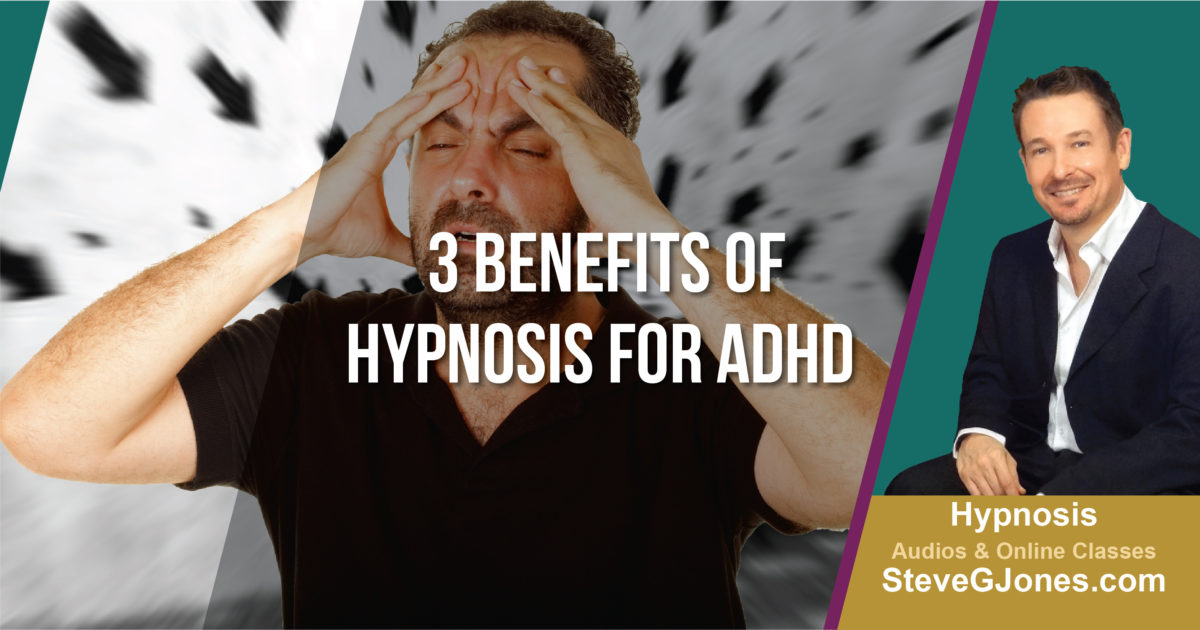Dr. Steve G. Jones
Attention deficit hyperactive disorder (ADHD)—sometimes referred to as ADD—is a common but little-understood disorder that seems to occur most in children. Symptoms of the disorder include challenges with concentration, short attention span, hyperactivity, and impulsivity.
Although the traditional method of treating ADHD involves a combination of psychotherapy and medication, it’s important to remember that people have varying responses to different forms of treatment, which is why there is no such thing as a one-size-fits-all approach to treating the disorder. Likewise, the multiple medications designed for treating ADHD/ADD also produce different side effects, ranging from anxiety and insomnia to reduced appetite and irritability.
Research on alternative and gentler forms of treatment for ADHD show that therapies like hypnosis can help people improve the focus, concentration, and stress levels of ADHD patients. One study published in the Public Library of Science found that “hypnotic suggestions have an effect on reaction times in the sustained attention task both in adult ADHD patients and control subjects.”
But what specific benefits does hypnosis offer for ADD and ADHD?
1. Hypnosis Plants Positive Ideas into Your Mind
By placing you in a state of deep relaxation, a hypnotherapist can produce a state of heightened focus, which in turn makes you highly receptive to positive suggestions. For example, if your ADHD keeps you up at night because you can’t get away from the computer, a hypnotherapist can help you relax at will and find the motivation to want to rest at night. In addition, this approach frees your mind from runaway thoughts that keep you distracted and restless.
2. Hypnosis is Gentle and Doesn’t Require any Medication
Hypnotherapy allows children and adults with ADHD to hone their focus, concentration, attentiveness, and control of their symptoms, all without having to use any kind of pharmaceuticals. Besides their adverse side effects, many drugs for ADHD don’t really address the disorder’s root cause, but rather only take care of the symptoms. This is precisely why therapy will always be the best way to rein in ADHD.











